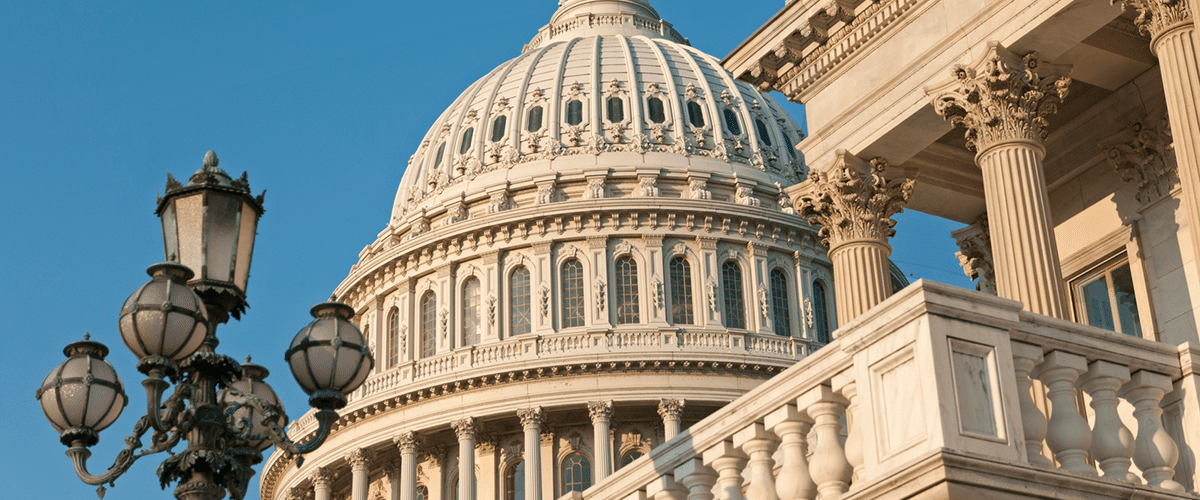[vc_row][vc_column][vc_column_text]
Members of a bipartisan group of lawmakers are joining forces in an effort to further congressional action on cannabis.
A newly formed bipartisan “Cannabis Caucus” is preparing to introduce a bundle of legislation regarding cannabis in the current session.
Made up of members of Congress who view marijuana reform as an important issue, the caucus so far includes U.S. Representatives Dana Rohrabacher (R-California), Earl Blumenauer (D-Oregon), Jared Polis (D-Colorado), and Don Young (Alaska), and the group is seeking more congressional members. Rep. Thomas Massie (R-Kentucky) is serving as the spokesman for the caucus.
“We want to make the states’ rights issue the core of what we are doing,” Rohrabacher told Decode DC in December. “Republicans don’t see this as something that their constituents want and they may not be positive towards legalization of marijuana. But with the states’ rights issue, that’s how we’ve won the necessary votes from the Republican side in order to win the battle.”
Rohrabacher introduced legislation last week that would allow states to determine their own marijuana policies without conflict of federal law. The Respect State Marijuana Laws Act, if approved, would end prohibition at the federal level. Rohrabacher has admitted to using marijuana for pain management and is also one of the authors of the Rohrabacher-Farr Amendment, which prohibits the Justice Department from using federal funds to interfere with the implementation of state medical marijuana laws.
While Republican lawmakers have historically been opposed to loosening marijuana laws, support for cannabis reform among Republican voters is currently at an all-time high. The caucus members believe that support for cannabis reform among lawmakers is building, despite the confirmation of anti-marijuana Attorney General Jeff Sessions.
“This Congress is going to be a little better than last Congress, and last Congress was better than the one before that,” Blumenauer recently told The Cannabist. “It’s very interesting watching the momentum build.”
“I’m more hopeful than ever before that we can move legislation like the Regulate Marijuana Like Alcohol Act,” added Polis. The Regulate Marijuana Like Alcohol Act, introduced by Polis in 2015, proposes removing marijuana entirely from the Controlled Substances Act. It’s just one of 25 cannabis-related measures introduced within the past couple of years that the caucus will look to revive.[/vc_column_text][/vc_column][/vc_row][vc_row][vc_column][vc_single_image image=”17320″ img_size=”1200×250″ onclick=”custom_link” img_link_target=”_blank” link=”https://www.medicalmarijuanainc.com/majority-americans-believe-not-worth-cost-enforce-marijuana-prohibition-poll-finds/”][/vc_column][/vc_row][vc_row][vc_column][vc_column_text]In addition to Rohrabacher’s Respect State Marijuana Laws Act, lawmakers have so far introduced three other marijuana-related bills this session:
- State’s Medical Marijuana Property Rights Protection Act (R. 331): Sponsored by Rep. Barbara Lee (D-California), the act prevents the federal government from seizing property used by state-authorized medical marijuana providers.
- Legitimate Use of Medicinal Marihuana Act (R. 714): Sponsored by Rep. H. Morgan Griffith (R-Virginia), the act moves marijuana to Schedule II and removes the federal obstacle to prescribing and possessing medical marijuana in states where it is legal.
- Compassionate Access Act (R. 715): Sponsored by Griffith, the act reschedules marijuana, allows marijuana for medical use under state law and excludes cannabidiol (CBD) from the definition of marijuana.
Marijuana is currently legal for medical use in 28 states and Washington D.C., and adult recreational use is legal in eight states. Nearly 60 percent of the population now lives in states with some level of marijuana legalization.
“We’ve had the movement crest,” Blumenauer told Decode DC. “Two hundred and fifty million people have access to medical marijuana, a quarter of the population has access to adult use. We’re watching an industry now where 60 percent believe marijuana should be legalized, and public opinion mirrors what happened at the ballot box.”
You can learn more about current cannabis laws in the U.S. by reading our education page. Keep up with the burgeoning U.S. cannabis industry by regularly visiting our news feed.[/vc_column_text][/vc_column][/vc_row]






